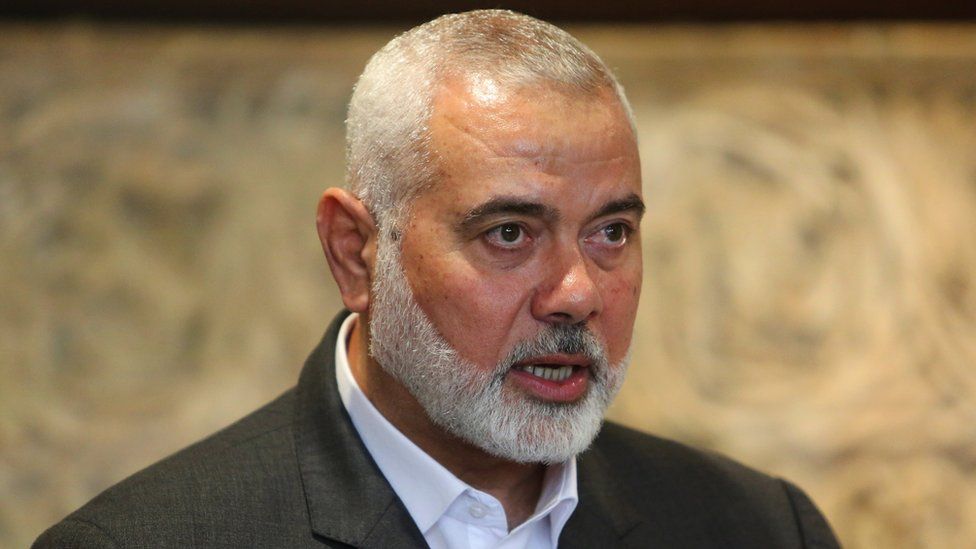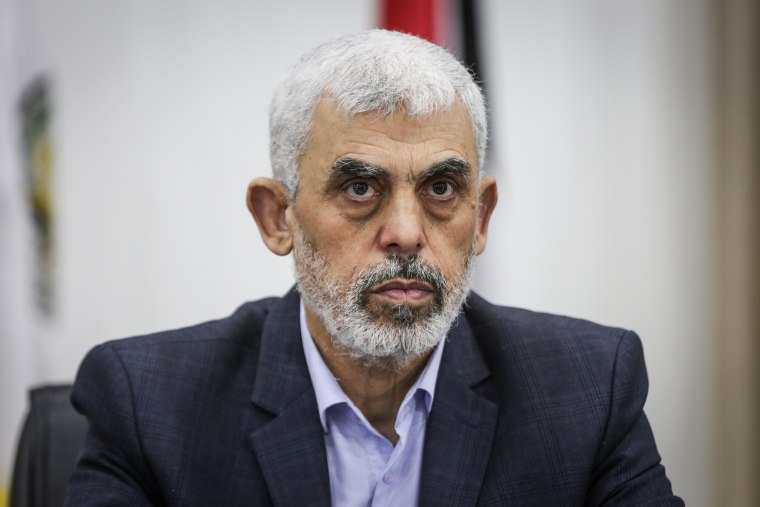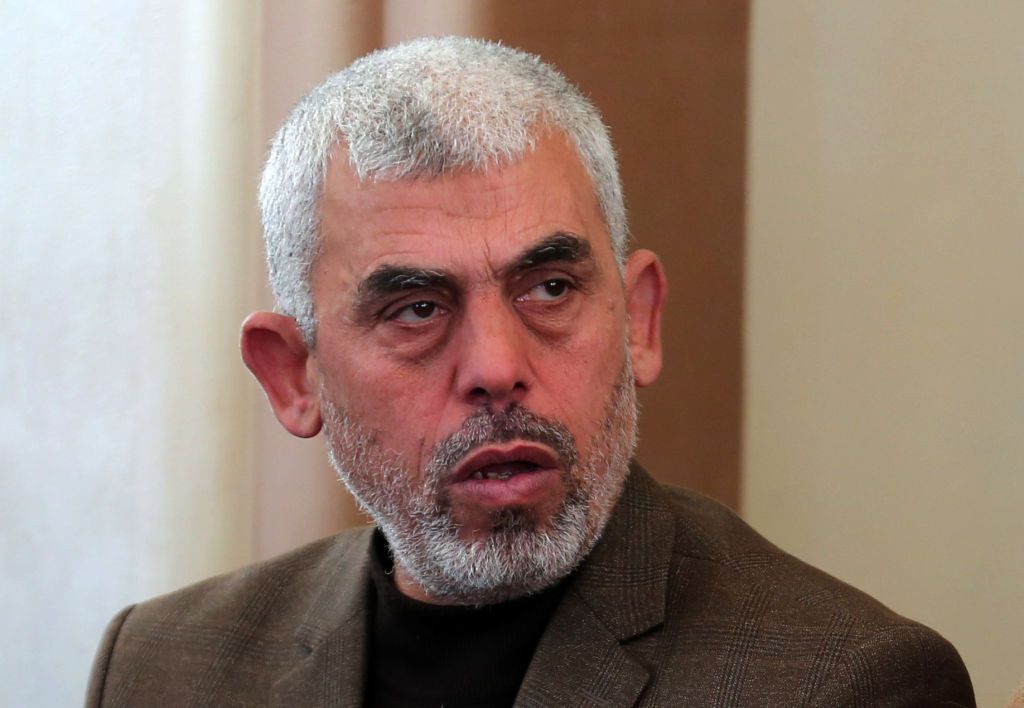Historical Context: Israel Hamas Leader

The conflict between Israel and Hamas is rooted in a complex and multifaceted history marked by decades of tension, violence, and political deadlock. Understanding the historical relationship between these two entities is crucial for comprehending the ongoing conflict and its potential pathways towards resolution.
Formation of Hamas and its Ideological Underpinnings
Hamas, an acronym for the Islamic Resistance Movement, emerged in the late 1980s as a Palestinian Islamist organization. Its formation was closely tied to the Israeli occupation of the West Bank and Gaza Strip following the 1967 Six-Day War. Hamas’s ideological underpinnings are deeply rooted in Islamic fundamentalism and a commitment to the establishment of an Islamic state in all of historic Palestine.
“The Islamic Resistance Movement (Hamas) is a Palestinian Islamic movement that is committed to the establishment of an Islamic state in all of historic Palestine.” – Hamas Charter
Role of External Actors
The Israel-Hamas conflict has attracted the attention of various external actors, including regional powers and international organizations. These actors have often played a significant role in shaping the dynamics of the conflict, sometimes contributing to escalation and other times acting as mediators or peace brokers.
Regional Powers
- Egypt: Egypt has historically played a complex role in the conflict, often serving as a mediator between Israel and Palestinian factions. Egypt’s influence stems from its strategic location bordering both Israel and Gaza. Egypt’s relationship with Hamas has been marked by periods of cooperation and tension, with Egypt occasionally playing a role in mediating ceasefires and facilitating humanitarian aid to Gaza.
- Iran: Iran has provided significant financial and military support to Hamas, viewing it as a key ally in its regional struggle against Israel and the United States. Iran’s support for Hamas has contributed to the escalation of tensions between Israel and Hamas, as well as to the broader regional conflicts in the Middle East.
- Saudi Arabia: Saudi Arabia has historically maintained a cautious stance towards Hamas, wary of its close ties to Iran. However, Saudi Arabia has also expressed support for Palestinian self-determination and has played a role in mediating ceasefires between Israel and Hamas.
International Organizations
- United Nations (UN): The UN has played a significant role in addressing the Israeli-Palestinian conflict, providing humanitarian assistance to Palestinians and seeking to facilitate peace negotiations. The UN has also condemned Israeli military operations in Gaza and has called for an end to the blockade of the territory.
- European Union (EU): The EU has been a vocal critic of Israeli policies in the West Bank and Gaza, and has imposed sanctions on Israel in response to its actions. The EU has also provided significant financial assistance to Palestinians.
- United States (US): The US has historically been a strong supporter of Israel, providing significant military and financial aid. However, the US has also played a role in peace negotiations and has called for a two-state solution to the conflict.
Leadership and Organization

Hamas, a Palestinian Islamist political and militant organization, has a complex leadership structure that reflects its dual role as a political movement and a resistance group. Understanding this structure is crucial for grasping the dynamics of its operations and its political strategy.
Current Leadership
The current leadership of Hamas is comprised of several key figures who hold various positions within the organization’s political and military wings.
- Ismail Haniyeh: Elected as the leader of Hamas in 2017, Haniyeh serves as the head of the organization’s political bureau. He is responsible for overseeing the political strategy and international relations of Hamas.
- Yahya Sinwar: Elected as the head of Hamas in the Gaza Strip in 2017, Sinwar is responsible for the day-to-day operations of Hamas in the territory. He also plays a crucial role in managing the organization’s military wing, the Izz ad-Din al-Qassam Brigades.
- Khaled Mashal: Previously serving as the head of Hamas’s political bureau, Mashal currently holds the position of chairman of the Hamas Shura Council. The Shura Council acts as the organization’s highest decision-making body.
- Mousa Abu Marzouk: As the deputy head of Hamas’s political bureau, Abu Marzouk is responsible for overseeing the organization’s foreign relations and international fundraising efforts.
Internal Structure, Israel hamas leader
Hamas’s internal structure is characterized by a distinct division between its political and military wings, each with its own hierarchy and responsibilities.
- Political Wing: The political wing of Hamas is responsible for engaging in political negotiations, forming alliances, and participating in elections. It also focuses on promoting the organization’s ideology and social agenda. The political wing is led by the Hamas Political Bureau, which is responsible for setting the organization’s overall strategy.
- Military Wing: The military wing of Hamas, the Izz ad-Din al-Qassam Brigades, is responsible for conducting military operations against Israel. It is responsible for training and equipping fighters, developing military tactics, and carrying out attacks. The military wing is led by a separate command structure, which operates independently of the political wing.
Leadership Styles
Hamas has been led by a variety of individuals throughout its history, each with their own distinct leadership style.
- Sheikh Ahmed Yassin: The founder of Hamas, Yassin was known for his charisma and his ability to inspire his followers. He was also known for his strict adherence to Islamic law and his commitment to armed resistance against Israel. Yassin’s leadership style was characterized by a strong emphasis on religious ideology and a willingness to sacrifice for the cause.
- Khaled Mashal: Mashal, who succeeded Yassin as the head of Hamas’s political bureau, was known for his strategic thinking and his ability to navigate the complexities of international politics. He was also known for his willingness to compromise and his ability to build alliances with other political groups.
- Ismail Haniyeh: Haniyeh, the current leader of Hamas, is known for his pragmatism and his ability to manage the organization’s internal conflicts. He is also known for his focus on social and economic development in the Gaza Strip.
Current Situation and Challenges

The Israeli-Palestinian conflict remains a deeply complex and volatile issue, with ongoing violence and political deadlock exacerbating tensions in the region. The situation is marked by a multifaceted interplay of historical grievances, competing narratives, and conflicting aspirations for self-determination.
Impact of the Conflict on Palestinians
The ongoing conflict has a profound and devastating impact on the lives of Palestinians in Gaza and the West Bank. Palestinians face a range of challenges, including:
- Economic hardship: Gaza has been under a strict Israeli blockade for over a decade, severely limiting economic activity and access to essential goods. The West Bank also faces economic challenges, with Israeli restrictions on movement and access to resources hindering development.
- Humanitarian crisis: Gaza has a high unemployment rate and poverty levels, with limited access to healthcare, education, and basic necessities. The conflict has also resulted in widespread destruction of infrastructure and displacement of people.
- Political fragmentation: The Palestinian territories are divided between the West Bank, controlled by the Palestinian Authority (PA), and Gaza, governed by Hamas. The ongoing conflict has contributed to political fragmentation and weakened the Palestinian cause.
- Security concerns: Palestinians live under constant threat of violence and insecurity, with frequent Israeli military incursions into the West Bank and airstrikes on Gaza.
Challenges Facing Hamas
Hamas faces a number of challenges in its efforts to achieve its political goals, including:
- International isolation: Hamas is considered a terrorist organization by many countries, leading to international sanctions and isolation. This limits its access to resources and support.
- Internal divisions: Hamas has faced internal divisions and factionalism, which has weakened its political and military power.
- Israeli military superiority: Israel has a far more powerful military than Hamas, which makes it difficult for Hamas to achieve its goals through military force.
- Lack of a clear path to peace: The Israeli-Palestinian conflict remains deeply entrenched, with no clear path to a lasting peace agreement. This makes it difficult for Hamas to achieve its goal of an independent Palestinian state.
Israel hamas leader – The conflict between Israel and Hamas leaders has been a source of global tension for decades. While the world watches with bated breath, perhaps a moment of peace can be found in the quiet joy of crafting a beautiful piece of furniture.
If you’re looking for a project to bring a sense of calm and order to your home, you might find solace in farm table chair plans , which can help you create a welcoming space for gathering and connection.
Just as building a table brings people together, we hope for a future where peace and understanding prevail between Israel and Hamas leaders.
The ongoing conflict between Israel and Hamas has captivated global attention, highlighting the complex dynamics of the region. While the world watches with bated breath, it’s easy to get caught up in the gravity of the situation and forget about lighter moments.
Perhaps a reminder of the simple pleasures in life, like those iconic beetlejuice beetlejuice popcorn buckets from the beloved film, can offer a brief respite from the heavy news cycle. Even in the midst of conflict, moments of levity can serve as a reminder of the human spirit’s resilience and its enduring capacity for joy.
